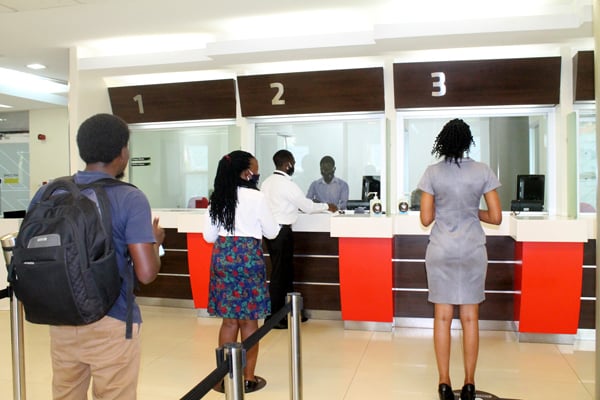Prime
Interest rates are still high - Absa bank boss

Mr Mumba Kalifungwa , Absa Bank managing director. Photo / Courtesy
What you need to know:
- Economic recovery in Uganda was evident during the first half of FY 2021/22. Similarly, indicators of economic activity reflected growth in the economy and a renewed confidence in business conditions. In this interview, the managing director of Absa Bank Mr Mumba Kalifungwa spells out their view on Uganda’s economic recovery.
The pandemic adversely affected the economy especially Small and Medium Enterprises (SMEs), some of which were unable to withstand the shock. SMEs, especially those in the tourism and hospitality sector, have perhaps been the most affected by the local and global interventions put in place to control the spread of the Covid-19 pandemic.
Absa bank has been and continues to support the SMEs by availing credit to them to resume their business plans and regain their business activities, we are providing advisory support, credit and financial skills by training them. The SMEs activities support economic growth, poverty reduction, innovation and job creation.
1. At this recovery time, what is your advice to Small and Medium Enterprises (SMEs) in Uganda?
Following reopening of the economy, this is an opportunity for the business to regain and start running their business as they were doing before Covid-19.
However, SMEs should first concentrate on borrowing from banks for investment activities not for consumption and refocus the various investment activities they are undertaking, the SME has to improve their corporate governance and their books of accounts because as banks we would like to see SMEs have proper records of accounts.
2. What is your view on Uganda’s economic recovery?
I’m very optimistic and confident about Uganda’s economic recovery. There is stability in the economy and the financial sector is very sound and strong. The education sector (schools) which had been closed is now open and all the other sectors of the economy which were operating are now open, which boost investor confidence in the economy.
Both the monetary and fiscal policies are geared towards boosting economic recovery and regaining high economic growth. We are going to see the economic performing going forward due to increased economic activities in the country. We remain cautiously optimistic following the decision by the government to fully reopen the economy, which signals a ray of hope for business recovery and the economy in general. To move Uganda and Africa forward, we are going to need collaborative efforts across the board to bridge the skills gap that is holding our SME sector back.
3. The tourism sector has been one of the worst hit sectors of Uganda’s economy. Any hope of this sector accessing credit from banks?
The tourism sector is an important sector of Uganda’s economy just like in other economies. We expect there is going to be faster recovery in Uganda’s tourism industry following the full reopening of the economy.

Customers in a banking hall. PHOTO/FILE
The waiving of mandatory Covid-19 testing for passengers traveling into the country through the Entebbe International Airport, will lead to faster recovery of the tourism sector in Uganda because many travelers will be encouraged to come to Uganda. When there is stability in the country and the health condition is fine, tourism and leisure recovers faster.
4. Why has the lending rate remained high despite the reduction of the Central Bank Rate which has been sustained by Bank of Uganda for long?
The lending rates have remained high not because banks want the rate to remain high but because of a number of factors. Among these factors are cost of operation which remains high for banks, risk profile of borrowers, the Treasury Bills all remains high, but the prime lending has reduced compared to the level it was some time ago.
5. How do you view the future of the private sector credit growth in 2022?
I believe private sector credit growth is going to pick up, because there are increased economic activities in the country. Various sectors of the economy are now operating. We are seeing construction and manufacturing credit picking up well.
Personal and household loans have been doing well. We are very optimistic about private sector credit growth and the banks are willing to lend to the private sector.
6. One of the reasons why there is a slow private sector credit is associated with risk averseness by the banks, what is your comment on this?
Banks have been lending to the private sector, though some have been risk averse. We have been actively lending to the private sector as they reposition themselves to revive their enterprise.
7. Will you participate in supporting investors in the oil sector since the Final Investment Decision has been signed?
Yes, Absa bank will be active in supporting investments in Uganda’s oil and the gas industry.
The FID is going to increase private sector investment, which will need financial support in form of loans from the financial institutions.




